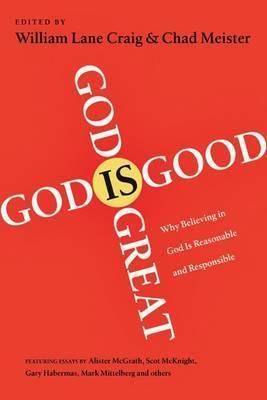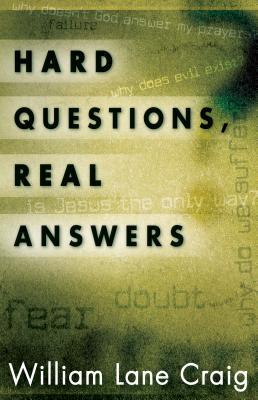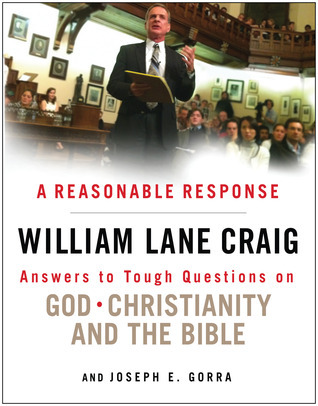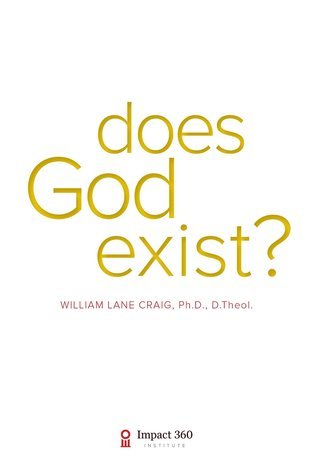
God is Great, God is Good: Why Believing In God Is Reasonable And Responsible
Book Description
Can faith really coexist with reason? In "God is Great, God is Good," William Lane and Chad Meister tackle this profound question head-on, illuminating the compelling reasons to embrace belief in God against a backdrop of skepticism and secularism. This thought-provoking anthology combines sharp intellect with heartfelt arguments, weaving together insights from philosophy, science, and real-life stories. Each chapter serves as a powerful call to consider the ethical and existential implications of faith, challenging conventional wisdom and igniting passionate debate. When the stakes are this high, can true meaning and morality thrive without a higher power guiding the way?
Quick Book Summary
"God is Great, God is Good: Why Believing In God Is Reasonable And Responsible" is a thought-provoking anthology that addresses contemporary skepticism toward theism, presenting a multifaceted defense of religious belief. Edited by William Lane Craig and Chad Meister, the book draws upon contributions from prominent philosophers, scientists, and theologians to argue that faith in God is both intellectually viable and ethically grounded. Through philosophical argumentation, engagement with scientific developments, and real-life testimony, the contributors make the case that belief in a personal God provides a coherent basis for understanding the world, morality, and human purpose. The collection explores the rational foundations for faith, confronts prominent objections like the problem of evil, and reflects on the interplay between religion and science. Ultimately, it asserts that belief in God is not just a matter of tradition or emotion, but a responsible and reasonable response to the biggest questions of life.
Summary of Key Ideas
Table of Contents
The Reasonableness of Faith in God
The contributors to this anthology begin by addressing the intellectual credibility of faith, challenging the assumption that belief in God is outdated or irrational in the age of science. Arguments from natural theology—such as the cosmological, teleological, and ontological arguments—are presented to establish a rational foundation for theism. The authors contend that, rather than being mere wishful thinking, belief in God provides explanatory power for the existence, order, and intelligibility of the universe that naturalism struggles to offer.
Addressing the Problem of Evil and Suffering
A significant portion of the book is dedicated to confronting the problem of evil and suffering—perhaps the most common objection to theism. The authors examine both logical and emotional aspects of the problem, arguing that the existence of suffering does not logically exclude the existence of a loving, omnipotent God. Instead, they propose that theism better accounts for our deep sense of moral outrage against suffering and injustice, offering hope and meaning even in the face of tragedy.
Religion and Science: Conflict or Compatibility?
The interplay between science and religion is explored, with the contributors rejecting the notion of inherent conflict. Citing developments in physics, cosmology, and biology, the authors demonstrate areas where scientific discovery can be congruent with or even supportive of theistic belief. They outline how the laws and fine-tuning of the universe, the origins of life, and the emergence of consciousness can be considered through both scientific and theological lenses, arguing that faith can harmonize with reason rather than stand in opposition to it.
The Moral Argument for God's Existence
A central theme is the moral argument for God’s existence. The contributors emphasize that objective moral values and duties require a transcendent source, and that naturalistic accounts ultimately fall short in providing an adequate foundation for human dignity and ethical obligation. The book illustrates how religious belief motivates individuals and societies toward justice, compassion, and altruism, linking moral responsibility to a divine moral lawgiver.
The Practical Implications of Theism
Finally, the book considers the practical significance of theism, asserting that faith in God undergirds meaning, hope, and purpose in life. Personal stories and testimonies are woven throughout, illustrating the transformative effects of belief. The authors argue that rejecting God not only poses intellectual and ethical challenges, but also diminishes the resources individuals have for resilience and flourishing. In sum, the book makes a comprehensive case that belief in God is both a reasonable intellectual commitment and a responsible way of life.
Download This Summary
Get a free PDF of this summary instantly — no email required.





